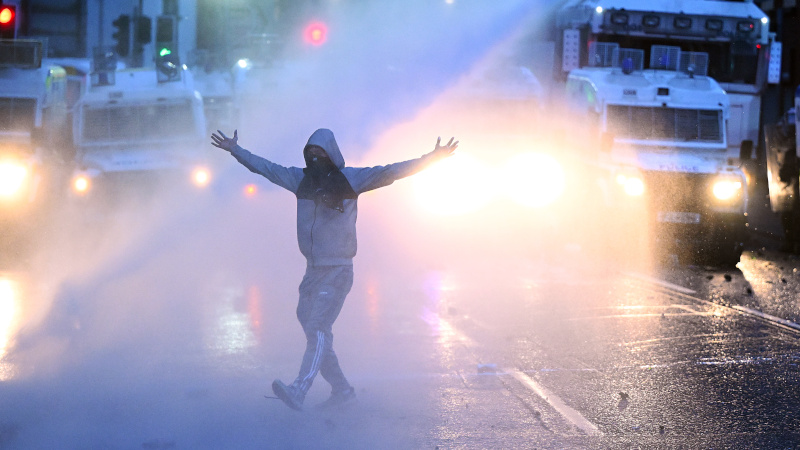 Image Credit: Charles McQuillan/Getty Images
Image Credit: Charles McQuillan/Getty Images A stark warning from the UK government has gripped the nation, with the National Security Strategy urging Britons to “actively prepare” for war on home soil.
The strategy, as reported by The Mirror and Daily Mail last week, outlines a perilous global landscape, citing Russian cyberattacks, Iranian sabotage, and potential disruptions to energy and supply chains.
Prime Minister Sir Keir Starmer, addressing NATO leaders in The Hague, underscored the urgency, noting that Britain faces “very frequent and very serious” cyberattacks daily. The strategy calls for a wartime mindset, invoking the resilience of World War II, and demands a collective effort to safeguard critical infrastructure against adversaries like Russia, Iran, North Korea, and even China.
This alarming directive resonates chillingly with the warnings of Dr. David Betz, a professor of War Studies at King’s College London, who recently appeared on the Heretics podcast to discuss the looming specter of civil war in the UK. Betz, a respected academic known for his work on insurgency and information warfare, predicts a domestic conflict within five years, driven by deep societal fractures.
He argues that the UK is “explosively configured” for unrest, citing a toxic brew of political mismanagement, cultural erosion, and a growing rural-urban divide. His analysis, grounded in official British statistics and mainstream theories on civil war causation, points to declining social cohesion and policies perceived as favoring migrants over native Britons—such as lenient sentencing for immigrants compared to harsher penalties for locals—as key triggers.
The government’s strategy and Betz’s predictions converge on a grim reality: the UK is vulnerable from both without and within. The National Security Strategy emphasizes external threats, warning that adversaries are “positioning themselves to move quickly” to destabilize the nation.
Meanwhile, Betz highlights internal decay, suggesting that societal distrust and resentment could ignite a “Latin American-style dirty war.” He envisions rural factions, feeling alienated by urban elites, targeting city infrastructure—power grids, transit systems, and water supplies—in guerrilla-style attacks. The Southport riots, sparked by the tragic stabbing of children, serve as a case study for Betz as a “semi-spontaneous display” of ethnic and cultural grievances that could escalate.
Public reaction to the government’s call has been polarized.
In urban centers like London, pub conversations hum with anxiety over what “active preparation” entails—stockpiling supplies, learning survival skills, or bracing for cyberattacks.
In rural areas, where distrust of Westminster runs deep, some communities are reportedly forming local defense groups, wary of both foreign threats and urban unrest. Posts on X reflect this divide, with some users amplifying Betz’s warnings and calling for stronger borders, while others dismiss the strategy as fearmongering to justify increased surveillance.
Betz offered a sobering prognosis, advising listeners to avoid cities, which he predicts will be flashpoints for conflict. Drawing parallels to the Troubles in Northern Ireland, he estimates a British civil war could claim tens of thousands of lives—or millions in a worst-case scenario.
“The existence of England as an idea is in peril,” he warned, pointing to a fractured national identity exacerbated by decades of policy failures.
Critics of the government, like Tory shadow foreign secretary Priti Patel, argue the strategy betrays weakness, accusing Starmer’s administration of prioritizing economic ties with China over security.
Others, echoing Betz, see a deeper malaise. Former police officer Dominic Adler, writing for UK Reloaded, describes a “poisoned well” of public trust, eroded by identity politics and the failure of multiculturalism. The government’s push for AI and defense modernization, while forward-thinking, feels hollow to those who, like Betz, believe the real threat lies in a nation divided against itself.
As Britain stares down these dual crises—foreign aggression and domestic discord—the government’s wartime rhetoric and Betz’s dire forecast signify a nation on edge. Whether the UK can unite in the face of these threats or succumb to the fractures Betz foresees remains an open question, but the call to prepare has cast a long shadow over the homeland.


